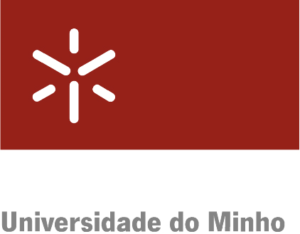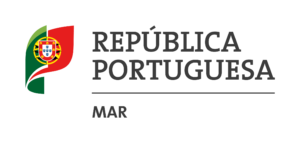About Us
Promotor
Mesosystem invest heavily in R&D to create the most innovative skin treatment products, providing the ultimate skin treatment medical cosmetics for professional use and homecare. Focusing on innovation and development, Mesosystems aims to present the market with effective results and solutions from high-tech equipment and advanced skincare products. Today and always, the company continues to work toward achieving new developments, discover different techniques, test abilities to continue the growth and evolution journey based on complete and total satisfaction of customers’ needs. Mesosystem has a staff of 38 collaborators, around 30% of whom have higher qualifications. The company has a large part of its collaborators allocated to commercial, production, administrative and financial activities. In recent years, the company has been reinforcing its staff, particularly in Research & Development.
![]()
Partners
University of Minho (UM) is undoubtedly a university of research. The university occupies in the most important international rankings, such as the Leiden Ranking, which is the main bibliometric ranking associated with scientific research. There has also been a clear increase in scientific publications and other diverse scientific outputs coming from the UM throughout the years. UM’s researchers are highly cited, with a big number of citations and h indexes in their scientific areas. The Centre of Biological Engineering (CEB in a PT acronym) is a research centre located at the UM (Braga) and integrated in the Portuguese Science and Technology System. CEB combines fundamental science – Chemistry, Biochemistry, Microbiology, Molecular Biology – with Engineering Sciences to obtain value-added products or processes in the Food, Chemical, Biotech, and Environmental Industries. CEB is a unit aiming to be a strategic infrastructure for the development of R&D and innovation policies in the areas of Biotechnology and Bioengineering, Biomaterials, Biomedical and Life Sciences, Environmental and Agricultural Sciences. Currently CEB aggregates 150 PhD Researchers (125 integrated and 25 collaborators) of which 23 are faculty members of the UM and 62 are faculty scientists. Core research is allocated to 4 interdisciplinary thematic areas: Industrial Biotechnology and Bioegineering, Food Biotechnology and Bioeengineering, Environmental Biotechnology and Bioenineering and health Biotechnology and Bioengineering. CEB acquired external recognition of its research activities and regularly deploys a number of actions concerning the dissemination of knowledge. Besides its high scientific Outcome, CEB stands amongst the R&D units with the highest number of Citations per paper in the Chemical and Biochemical Engineering area, with several papers amongst the “Hottest and most read articles”. Therefore, their researchers are invited to take part in several Editorial Boards of journals several Technical Committees, in scientific and professional Societies governance, numerous Scientific Committees of international conferences, and to act as Reviewers of a high number of scientific articles every year.

University of Azores (UAç) has played a fundamental role in education and research, thus contributing to professional qualification, economic growth, social improvement and intercultural awareness. The Biotechnology Centre of Azores (CBA) aims to be a strategic R&D unit in Biotechnology, and its interaction with Agricultural and Biological Sciences. The CBA conducts applied and basic research and will help to bridge the gap between research and market, creating new jobs, ideas, knowledge and education for an inclusive and innovative society. Given the geological nature, biodiversity and location of the Azores, the genetic resources available here arouse scientific interest, positioning the archipelago as a laboratory of excellence. Considering this, the CBA outlined objectives focused on the knowledge and valorization of endogenous resources, applicable not only locally, but also at the global level. The CBA goal is to promote excellent research, advanced education and technology transfer, to be competitive within the international research community, highlighting the regional natural resources as a source for competitive research, innovative products and solutions. Through a multidisciplinary research group, it aims to study and sustainably use the endogenous genetic resources with the biotechnological potential to benefit the agricultural, bioindustrial and environmental sectors. Scientific Objectives rely on the integration of different scientific subjects and competencies to develop two interconnected research themes: i) Plant health and bio interactions and ii) Sustainable management and biotechnological exploitation of Azorean natural resources.

Nofima is a leading institute for applied research within the fields of fisheries, aqUAçulture and food research. They supply internationally renowned research and solutions that provide competitive advantages along the complete chain of value. The institute was established on 1 January 2008 and has 394 employees. “Sustainable food for all” is Nofima vision. Nofima is involved at any moment in several hundred projects, from long-term industrially targeted fundamental research to short innovation projects, where the results are immediately used. The project AQUABIOPRO-FIT can be highlighted, in which some residual by-products are converted into high-quality, functional ingredients using efficient and sustainable methods. Other relevant project is the BlueCC, financed by the BlueBio Cofund, aiming to take underutilised invasive marine species, by-catch and cleaner fish from the aqUAçulture industry (lump fish) to develop eco-friendly marine ingredients and products using a market acceptance approach. The invasive species include invasive crustaceans (i.e., crab and shrimp), echinoderms (i.e., starfish) and ctenophores (i.e., jellyfish). They are exploiting chitin and collagen produced by the sources mentioned and commercialising products derived from these polymers. This could provide new sources of revenue for food manufacturers who generate a lot of surplus raw material while manufacturing the main product. Nofima has experimented with raw materials from reindeer, chicken, and various marine species, and has found ways to extract collagen. Each source and each product require its own method. For this purpose, researchers use hydrolysis where enzymes are added to the raw material, dissolving it, and a series of different processes separate dry matter from wet. The protein is also suitable for making various gelatine products. Fifteen years ago, Nofima scientists succeeded in manufacturing gelatine from cod skin. The successful extraction of collagen from various animal species is a result of many years of research experience and excellent partnerships with industrial partners and European research communities.

Join our mailing list!
Contact Us
More important than what we have to say about ourselves, is what the customers have to say about us.
So let us learn and contact us!
We create possibilites for the connnected world – Mesosystem S.A.
info@mesosystem.com
Phone
Telephone (+351) 227 347 125 (Call to a national fixed network)
Mobile (+351) 924 188 704 (Call to a national mobile network)
Location
Rua de Júlio Dinis 228, 4050-371 Porto, Portugal








